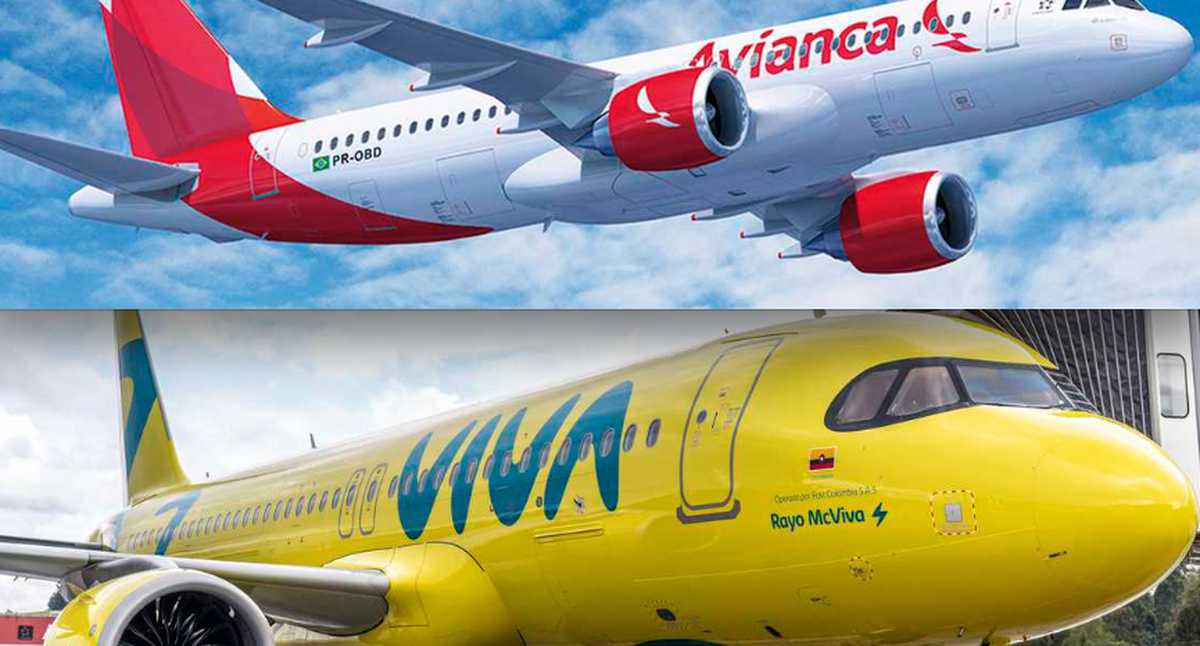The Ministry of Transportation and the Civil Aviation Authority objected to the integration of Avianca, Fast Colombia S.A.S (Viva), and Viva Air Perú S.A.C (Viva Perú) for generating risks for competition in the sector, for the welfare of consumers, and adverse effects on the market.
Also, the airlines did not provide sufficient evidence to prove the exception of Viva’s company in crisis, which the applicants argued.
“There has not been a single person, a single interested third party, that has submitted its observations, and they have not been considered.
“It is a decision in law. We recognize the dedication of the Aerocivil team; it gives us absolute confidence for its rigor,” said Guillermo Reyes, Minister of Transportation.

The Aerocivil concluded that this economic group would reach 100% of the participation in 16 national routes if the proposed integration is allowed. The economic indicators used to evaluate this integration show a considerable potential deterioration.
“In terms of free competition, it would mean a setback and a return to levels that were not seen in the country more than seven years ago”.
Likewise, Viva, a relevant player in the Colombian market, has energized competition in the sector and has become a valuable alternative for Colombian and regional consumers, who would disappear as an independent competitors.
Aeronautics also says that other competitors would face new difficulties in growing or entering markets affected by higher entry barriers and greater market power.
“Consumers could be harmed to the extent that the integrated entity (Avianca, Viva Air, and Viva Peru) would have more facilities, incentives, and lower risks by increasing prices, reducing frequencies, canceling routes, or reducing complementary services, among others.”
Regarding the request for the exception of the company in crisis, which Avianca argued was the situation that Viva was going through, Aerocivil highlighted that although it was accredited that Viva currently faces a relevant financial situation, the airlines did not prove that the economic crisis is of such magnitude that affects its viability in the market and, therefore, is doomed to leave the market imminently and inevitably.
“Regarding the search for alternatives, through options other than the sale or turning to less anticompetitive buyers, Viva did not prove that it has explored and exhausted other alternatives and that the same has turned out to be unfeasible.
For example, there is no evidence in the file that Viva requested loans from financial entities and sent offers to potential buyers such as investment funds or investor groups,” described Alexandra Palomino, director of Air Transport and Aerocivil’s aero-commercial affairs.
And that line that the airlines also failed to prove that the damage to competition generated by the transaction was less than that which Viva’s exit from the market would cause.
“On the contrary, Avianca and Viva merely recounted the effects of Viva’s alleged exit from the market but did not compare the same with the effects that the transaction approval would generate.”
Therefore, considering that Avianca and Viva had the burden of proving compliance with all the company’s requirements in crisis exception.
In this case, the application of such an exception was the basis for the approval of the proposed transaction; it was challenged.
REACTIONS
After learning of Aerocivil’s decision, Viva indicated that they received it respectfully but with surprise because the alliance in itself would have constituted an endorsement of the continuity of the low-cost model in the region.
They will review the alternatives they have, “given that this alliance is necessary for the continuity of Viva, to continue promoting air connectivity in the country at low prices and the source of employment of more than 5,000 direct and indirect employees of Viva”.
And that in the meantime, they will continue to operate “as we have done throughout our ten years of operations, and in recent months despite the difficult macroeconomic environment we face, committed to promoting air inclusion in Colombia and the region, hand in hand with our ‘super low cost’ model that has generated higher levels of connectivity and development for the country and the region”.
Let’s remember that this integration request was officially made at the beginning of last August to make the permanence of the low-cost airline viable for the benefit of passengers’ connectivity in Colombia and Peru, as well as to safeguard jobs that directly and indirectly depend on Viva.
At that time, Adrian Neuhauser, president and CEO of Avianca, stated that “the request for integration with Viva seeks to fight for its survival in the market, as well as to maintain the competitiveness it has built during ten years of operation.
Even with the complex panorama that aviation is experiencing in the world due to rising fuel prices, and the historic inflation in the region, Avianca has a solid financial position, evident in the recent announcements, which would allow it to achieve synergies and take advantage of economies of scale with Viva, provide financial support and participate in its management.
We are confident that the Aeronautical Authority will be able to study this request promptly, given its relevance to the country”.
With information from Bloomberg

